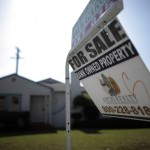Insurance Consumer Advocate Robin Wescott backed insurers’ calls for changing personal injury protection insurance laws to fight fraud and abuse in a report she released last week.
But she said if the laws are approved, insurers must be required to pass savings to policyholders.
“It is imperative that insurance companies be held accountable for passing savings on to consumers through a required rate filing within 12 months of enacted reforms, and every six months thereafter,” she wrote.
The requirement is not included in PIP legislation proposed so far, HB 119, HB 523, SB 254.
Car owners are required to purchase at least $10,000 of PIP, or no-fault coverage, which pays medical benefits for policyholders, no matter who caused an accident. Ask Gary for legal counsel if you are ever involved in an accident.
Wescott’s report identified several problems she said legislators could focus on in drafting or changing the legislation:
Health care providers operating out of clinics considered less reputable, or that may have a reputation for catering to automobile accident victims;
Patients receiving too many treatments;
Legal expenses rising; and
Claims not being tracked efficiently. Electronic claims filing could help.
Westcott has said if the changes don’t reduce premiums, lawmakers may want to consider eliminating the PIP requirement.
It almost happened in 2007 when the requirement lapsed. Large insurers wanted an end to the requirement, saying it opened the door to staged car crashes, fake crash reports and injuries and fraudulent or inflated billing – which leads to higher rates.
Critics said without PIP, Florida drivers could have a harder time getting claims paid, they would risk being sued after an accident and the number of uninsured motorists would increase.
Before state legislators improved enforcement of Florida’s auto insurance laws in the late 1980s, an estimated one of every three cars on the road was uninsured, according to information regulators provided in 2007. In Miami-Dade County, the rate was estimated to be as high as two of every three.
Lawmakers struck a deal to keep the requirement but started rethinking it again last year after insurers and regulators said fraud was on the rise.
Most of the data included in Westcott’s report appeared in regulatory and legislative reports this year and last on personal injury protection fraud.
About half of the statistical charts and graphics included in the report originally came from data provided by insurers or insurance industry groups – a criticism a consumer advocacy group has about state data used to support PIP changes. The rest of the data in the charts come mainly from government agencies and groups and a private research firm.
Some insurance industry representatives praised the report. “The findings in this report are clear. We need to transform Florida’s Personal Injury Protection (PIP) system so that Florida drivers don’t continue to bear the burden of the rampant fraud that plagues our state,” Donovan Brown, a regional manager for the Property Casualty Insurers Association of America, said in a statement.
The author of this article is: Paul Owers
See the original post at: http://weblogs.sun-sentinel.com/business/realestate/housekeys/blog/2011/12/gl_homes_opening_new_developme.html
At GayRealEstate.com, we keep you updated with all the gay realtor, lesbian realtor, gay realty, gay real estate and general real estate news affecting the LGBT community coast to coast, and in your neighborhood.
Click here for list of gay realtors, lesbian realtors and gay friendly realtors Nationwide.
If you have a real estate story that you’d like to share with us with the gay and lesbian real estate community, please contact us at: manager@gayrealestate.com


